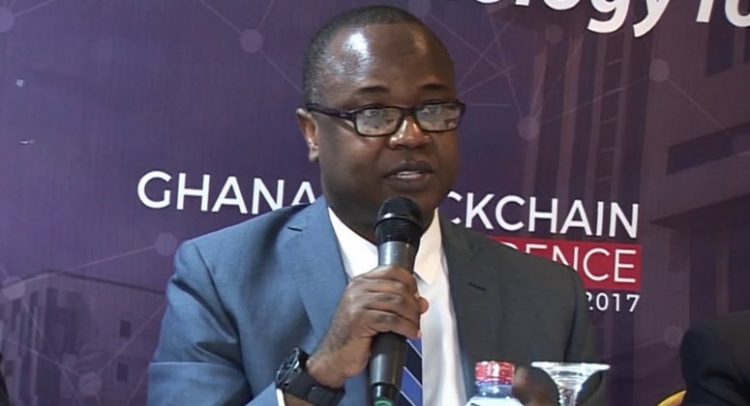Dr. Maxwell Opoku-Afari
First Deputy Governor of Bank of Ghana, Dr. Maxwell Opoku-Afari is calling on Government to make conscious effort to stamp out misapplication of management of the public purse.
He believes that professionalism and morale can be compromised therefore government must shows real commitment to efficient utilization of state resources.
According to him, the stamping out misapplication of funds should not only be done through punitive action but also by implementing recovery measures to ensure that the public purse is protected.
And in this regard, the Deputy Governor calls for massive support for the recent work being done by the Auditor General and the appointment of the new Special Prosecutor.
“The Ghana Beyond Aid Charter and Strategy Document estimates that Ghana’s infrastructure needs are about US$7 billion annually over the next 10 years. This is the kind of investment needed to push us into that upper middle income class. But there are constraints. And I must say that these are staggering numbers which will require a new paradigm shift in the way we finance development. How do we finance these projects to ensure improvement in living standards of Ghanaians?
“As we think of how we finance these projects, we need to be conscious of the fact that we also faced a major constraint—an optimization problem requiring us to control total public debt exposure to ensure high debt levels do not constrain growth and poverty reduction efforts” he said at a public lecture at the University of Ghana.
“Madam Vice Chancellor, this is where we need a reality check on what it means and what it takes to “eat solid food and chew bones” the First Deputy Governor stated further when he delivered a public lecture at the UG Business School on Thursday.
The lecture was on the topic ‘Re-thinking development Financing; Macroeconomic management when the love is gone’ under the auspices of the Office of the Vice Chancellor.
Dr. Opoku-Atari urged government to find creative ways of delivering fiscal space for financing development to close the staggering infrastructure deficit and to help the private sector to thrive.
“I will focus on two options available to us:Madam Chairperson, first, is the need to enhance efficiency of public spending, expenditure rationalization, and value for money projects that will deliver projects more efficiently.
“No matter the efforts we make towards enhancing domestic revenue mobilization, we will continue to experience chronic fiscal deficits and a growing debt burden, if we do not take steps to rationalize our expenditure levels. The high levels of government spending required to close the huge infrastructure deficit and debt are limiting fiscal room for maneuver. This therefore calls for the kind of fiscal consolidation that involves both revenue-raising measures and expenditure-rationalisation policies, with the aim of reducing the overall fiscal deficit to sustainable levels and achieving structural
fiscal balance over the medium term. This is achievable when governments are efficient and serve as a catalyst for private-sector-led growth and development,” according to him.
He continued by asking government to identify areas where spending is either wasteful, inefficient or does not deliver value for money, with the view to curtailing or eliminating them completely.
The governor indicated that negotiation of government projects and contracts must be effectively handled and scrutinized to ensure that losses are minimized, and facilitate value for money considerations.
“I think we need a change in mindset when it comes to negotiating such state projects. We must ask ourselves these key questions: to what extent does the State benefit from such projects? and what are the feasibility studies and cost-benefit considerations that go into these? Technical, operational, financial and economic feasibility must be paramount in such decisions.
“Another reason for efficiency in public spending is the fact that the level of tax compliance depends on citizen’s perception of the utilization of such taxes. Thus, their acceptance and compliance are tied to the effective use of these resources. When citizens perceive that the tax system does not inure to their benefits, they are likely to want to evade or not comply with such tax obligations. But where revenues are used to finance productive spending programs, they are more likely to accept their tax obligations.”
Dr. Opoku-Atari praised government for introducing reforms to deal with evation of tax, saying that “The current Government has started reforms in this area; let us all support them to institutionalize these reforms.”
He was of the view that efficiency in expenditure requires public financial management reforms which will increase the efficiency and transparency of public spending and be helpful in supporting tax reform effort.
The governor was optimistic that when government was able to stamp out misapplication of public purse will help in the financing of the free SHS programme which has definitely come at a cost to the fiscal authorities albeit the initiative has immense long-term benefits.
“The Finance Minister, just last month, disclosed in Parliament that the nation has spent about GH¢7.6 billion on the ‘Free SHS’ programme, with about GH¢4.2 billion (about 55 per cent) coming directly from Government revenue, and the remaining GH¢3.4 billion (about 45 per cent), from the Annual Budget Funding Amount (ABFA) –which is the amount of petroleum revenue allocated for spending in the budget. The long term sustainability of the free SHS programme will depend largely on the country’s capacity to mobilize domestic revenue to continue to support this worthy and critical initiative,” he stated.
By Vincent Kubi

